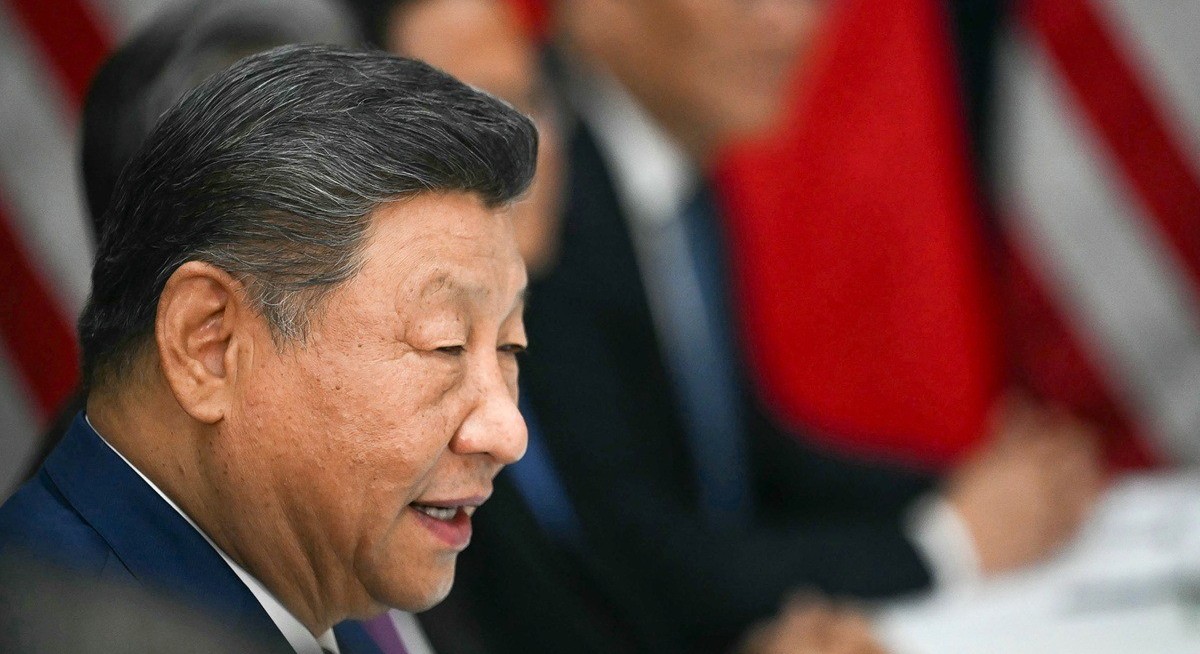(Oct 31): Chinese leader Xi Jinping warned against “breaking supply chains,” in his first public remarks after a landmark meeting with US President Donald Trump that secured a one-year truce in the world’s biggest trade fight.
Countries should “jointly maintain stable and smooth industrial and supply chains,” Xi said during a speech Friday at the leaders’ summit of the Asia-Pacific Economic Cooperation (Apec) group in Gyeongju, South Korea.
“We must adhere to the principle of joining hands rather than letting go, and extending rather than breaking supply chains,” the Chinese leader stated, while calling on those gathered to practice “genuine multilateralism.”
Xi’s appeal was delivered to an audience featuring US Treasury Secretary Scott Bessent — who has spearheaded Trump’s trade negotiations this year — along with a host of world leaders grappling with America’s highest tariffs since the 1930s. “The more turbulent the times, the more we must work together,” China’s most powerful leader since Mao Zedong told the group.
Xi’s remarks came a day after he sealed an agreement with Trump that saw America roll back some tariffs and export controls and Beijing commit to buying US soybeans and pause fresh rare earth curbs. Trump described their sitdown at an air base in Busan as “amazing”, while Xi said that dialogue is always better than confrontation.
Adding to that flurry of diplomacy, defence chiefs from the world’s largest economies held their first in-person talks Friday morning, in another sign of stabilising ties. US Secretary of Defense Pete Hegseth sat down with Chinese Defense Minister Dong Jun at a gathering in Kuala Lumpur.
See also: Briefs: Trump-Xi trade deal; US Fed cuts rates; MAS to shift IPO review functions to SGX RegCo
The trade truce is poised to resolve — at least for now — months of trade brinkmanship in which the US and China threatened a series of levies and export controls on their products that had the potential to disrupt global supply chains and hurt the world economy. Still, it fell short of a comprehensive agreement to address issues at the heart of US-China economic competition.
Both countries appear determined on further decoupling during the one-year stopgap. Trump used his swing through Asia to bolster relations with key allies such as Japan and South Korea, and win investments from them in ship-building and rare earths — areas that would put him in a stronger position to negotiate with Xi a year from now.
Xi touted the attractiveness of China’s economy to the Apec ensemble, trumpeting some US$700 billion in foreign investment he said his nation had attracted over the past half decade. While exports to nations outside the US have surged this year, a slump in Chinese factory activity in October extended to its longest decline in nearly a decade, raising questions around the sustainability of that trend.
See also: EU wants reassurance US won’t block AT1 wipeouts if banks fail
Xi also talked up his nation’s efforts to open its economy by removing barriers to foreign investment, widening a visa-free programme and opening 22 pilot free-trade zones. Those claims stand in contrast to complaints from leaders in the European Union, for example, who have criticised Beijing for offering preferential treatment to its own companies.
China’s decision to weaponise its rare earth supply chain that’s critical to manufacturing everything from cars to chips has also raised tensions with trading partners beyond the US. That fallout has led to a broad push for countries to reduce their dependency on the Asian nation for such magnets.
China is similarly moving to become less dependent on the US for core technology. The Communist Party recently unveiled a blueprint for its five-year plan focused primarily on achieving key tech breakthroughs, particularly in high-end chips, as China moves to create supply chains independent of the US.
China is set to host the APEC meetings next year.
Uploaded by Liza Shireen Koshy




